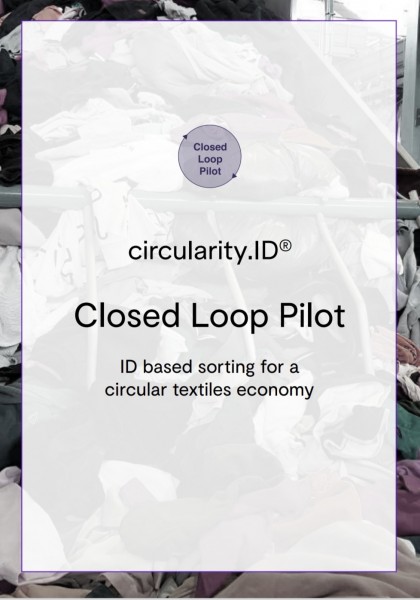Pioneering circular business models in fashion
27.07.2021
BERLIN - circular.fashion and FairWertung initiate the Closed Loop Pilot together with German fashion brands and charitable textile collectors/ sorters. The aim of the project is to apply a closed loop system for the fashion industry in practice and on a larger scale. The project was launched in june 2021 with a joint kick-off workshop and will run until the end of 2022.
Circular economy is team work - a wide variety of actors are involved along the value chain from production to recycling. Accordingly, a circular economy requires integrative approaches. This is why five German fashion brands of different sizes, charitable textile collectors and selected recyclers are coming together in this joint pilot project. Together they are testing a closed loop for textiles by applying the circular.fashion system.
Circularity in the reality check - within the framework of the project, the fashion brands are launching different circular textile products. These articles are additionally equipped with a circularity.ID®. The circularity.ID® makes intelligent sorting via charitable take-back channels possible. The consortium is taking the lead here as a pioneering project to implement circular models in practice. The participants expect to gain important insights into the necessary fine-tuning with the involvement of consumers for a sustainable circular economy for textiles.
Partners
circular.fashion is part of the project coordination and provides its own services such as circular design consulting, the circularity.ID®, digital product sites for consumers and intelligent sorting stations.
FairWertung e.V., as an umbrella organisation of 139 non-profit collectors and sorters, is part of the project coordination and also the link to the textile collectors/ sorters affiliated with FairWertung. The following collectors Aktion Hoffnung Augsburg, Aktion Hoffnung Rottenburg-Stuttgart, Brockensammlung Bethel, Deutsche Kleiderstiftung, Diakonia München and Sammelzentrale Laupheim are participating. Together with the fashion brands, they are developing return channels for consumers. Moreover they are also installing intelligent sorting stations to optimally sort the clothes equipped with IDs in the sense of a circular economy.
Within the framework of the project, the participating fashion brands ARMEDANGELS, Besonnen, OTTO, The Slow Label and Vretena each develop a circular collection that is equipped with the circularity.ID®. In addition, they choose a sales model so that the textiles are returned after a few months to test the return channels.
Aims of the project
The participating organisations expect the practical experience to deepen their understanding of the success factors for implementing a circular economy for textiles. Particular attention will be paid to cross value chain collaboration between fashion brands, collectors/ sorters and recyclers.
The project will test the implementation of an ID to inform consumers and sort, resell and recycle used textiles in a real-life setting.
Textile sorters will be able to use an intelligent sorting station for ID- based sorting to directly identify the exact material composition as well as commercial factors such as the resale value of waste textiles and thus more accurately allocate sorting fractions. Thanks to the improved sorting quality, it should be possible to serve higher- quality reuse or recycling fractions, for example for fibre-to-fibre recycling, for which not enough information such as the exact material composition is available today.
Ultimately, a circular infrastructure is to be established that can be expanded and used beyond the pilot phase.


